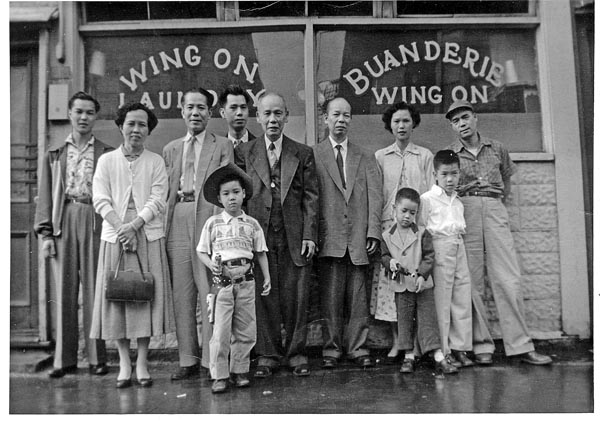

Chinese in Canada faced rampant discrimination, and this legacy has yet to be fully dealt with, Rena Li reports in Toronto.
First came the head tax of $50 in 1885, which was increased to $100 in 1900 and to $500 in 1903. As the amount rose, the aim stayed the same: prevent Chinese from staying in Canada.
The first head tax imposed by the government came after the Canadian Pacific Railway was completed in 1885. The last punitive tax in 1903 was equal then to about two years' salary or the purchase of two homes.
Raising the tax twice wasn't enough to stop Chinese, so the Canadian government turned to legislation to formally institutionalize racism-the Chinese Immigration Act, also known as the Chinese Exclusion Act-in 1923.
It denied Chinese the right to vote; practice law or medicine; hold public office; or seek employment on public works or own government land, along with other restrictions.
From 1885 until 1947, the head tax and exclusion act plunged the Chinese community in Canada into decades of debt and family separation.
William Ging Wee Dere's grandfather arrived in Canada in 1909 and paid the $500 tax. His father paid it when he arrived in 1921.
Now a book and documentary by Dere tells their stories and those of the last living survivors of the head tax and exclusion act: Being Chinese in Canada: The Struggle for Identity, Redress and Belonging (Douglas& McIntyre, 2019).The book won the 2020 Blue Metropolis/Conseil des arts de Montreal Diversity Prize.
"I wrote this book to tell my story of what it means to be Chinese in Canada. I wanted the voices of generations of Chinese Canadians involved in the head tax redress movement to be heard," says Dere, who has been active in fighting for equality and justice, including the 22-year movement for redress of the head tax and exclusion act.
The book explores how Canadian legislation separated his family for several decades. It also reveals an underexposed aspect of Canadian history ignored and forgotten for a long time.
The tax strongly discouraged those who had already immigrated to Canada from bringing their wives and children from China, effectively splintering families. "Then came the Chinese Exclusion Act to stop Chinese immigration altogether," Dere writes in the book.
Dere says he knew nothing about his family history or his connections to the past for three decades, until he was in his 30s. After Dere's father died, he found his head tax certificate and later his registration certificate. All Chinese living in Canada had to register with the immigration and colonization department.
"I only discovered that when I found a little-known artifact, the general register of Chinese immigration, which contains the names of the 81,000 Chinese immigrants who were forced to pay the tax totaling $23 million," says Dere, adding that it was almost the total cost of building the railway.